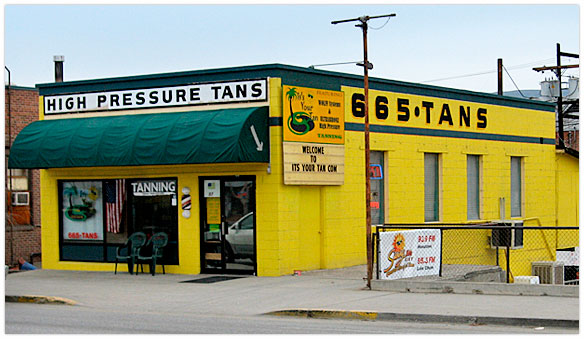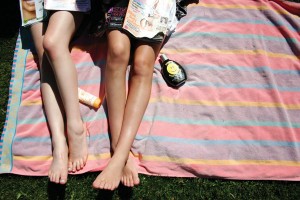Tanning salon owner addresses the supposed dangers of tanning

Photo Courtesy of Public Domain
Wenatchee’s It’s Your Tan, located at 117 North Mission Street.
May 13, 2015
Behind every tanning salon is an owner. When selling unlimited tanning packages, oils, and the look of your own sunkissed skin is your business, every study and law against tanning can seem like an attack on your livelihood. For It’s Your Tan, though, owner Danielle Jack said she has seen the local salon going strong for 13 years, with sales continuing to increase this year. During a 20 minute interview with Jack, at least five customers went in and out of the salon, one of them being a WHS student, and Jack has no fear of this popularity fading.
What is your opinion about the State banning tanning salons for those under 18 years old since last June?
“Honestly, I think parents are responsible for their kids until they are the age of 18, so if a parent wants to take their child to a responsible tanning salon and get them a base tan before they go outside and run the risk of burning, it should be a parent’s choice, not government’s.”
You say you haven’t seen a drop in customers despite all the recent talk about skin cancer and sun damage. Why do you think people still go, or should go, tanning?
“If you tan responsibly, you run a smaller risk of skin cancer. Sun burning is what causes skin cancer; tanning is actually very natural. We are actually creatures of the sun. You take us out of the sunlight, we actually get depressed…If you look at countries that are closer to the equator, who are exposed to the sun all the time, they have no skin cancer and they have lower risks of other cancers. And sunshine is one of the few ways your body actually produces its own Vitamin D, and most people are deficient.
What has been your personal experience with tanning?
“I’ve been tanning indoors … for over 35 years, and I have no skin damage. And my vitamin D levels are off the chart; my bone density is great. I just think [tanning] needs to be done responsibly, and that’s the problem. It’s just like when people say a glass of wine is good to go with dinner, that doesn’t mean drink the bottle. Anything that is done responsibly can be a good thing.”
Why would you say tanning indoors is responsible?
“It’s in a controlled environment; your exposure is controlled. I know what percentage of UVA and UVB rays every bed in this place puts out. And we screen everybody, so we can find the right combination of time and bulbs to get them brown because like I said, a suntan is the body’s natural sunscreen.”
Do you think it is more responsible than outside?
“I absolutely think indoor is safer than outside. Because we control the exposure that they are getting and outside you are dealing with UVA, UVB, UVC rays and toxins, air pollution, that kind of stuff that you don’t have in a tanning salon.”
Does your business do spray tans?
“A spray tan is a contradiction of words. A spray tan is a paint job, and we don’t do paint jobs. Our bulbs actually work your body’s system to bring out your natural color…But spray tanning hasn’t been long enough for them to know the long term effects on the respiratory system are because when they are spraying you with that stuff, you’re inhaling it, and it’s a chemical that is staining your skin, so what is it doing to your esophagus, your throat, your lungs? They don’t know.”
What do you say to the studies that show tanning in a bed significantly increases the chances of skin cancer?
“There are people who get lung cancer that have never smoked a day in their life. There are people who get skin cancer who have never been in a tanning bed before. Cancer is already in our bodies; it’s just whether or not it materializes. Most of the people who get skin cancer, it’s found in the arm pits, in their glands. By their logic, if tanning beds cause skin cancer and most of it is found in the arm pits, then the only part of the body you exposing to the bed is the armpit.”
If that’s the case, then why all the talk about skin cancer?
“I think between the sunscreen companies and the dermatologists, which are multi-million dollar industries, they would rather give tanning a bad name then advertise the benefits.”
What do you think is the future of indoor tanning?
“Hopefully, people will educate themselves to the benefit of it than being scared of the sun, like they have been. My hope is they will learn the benefits of tanning responsibly, not just tanning, but tanning responsibly.”



